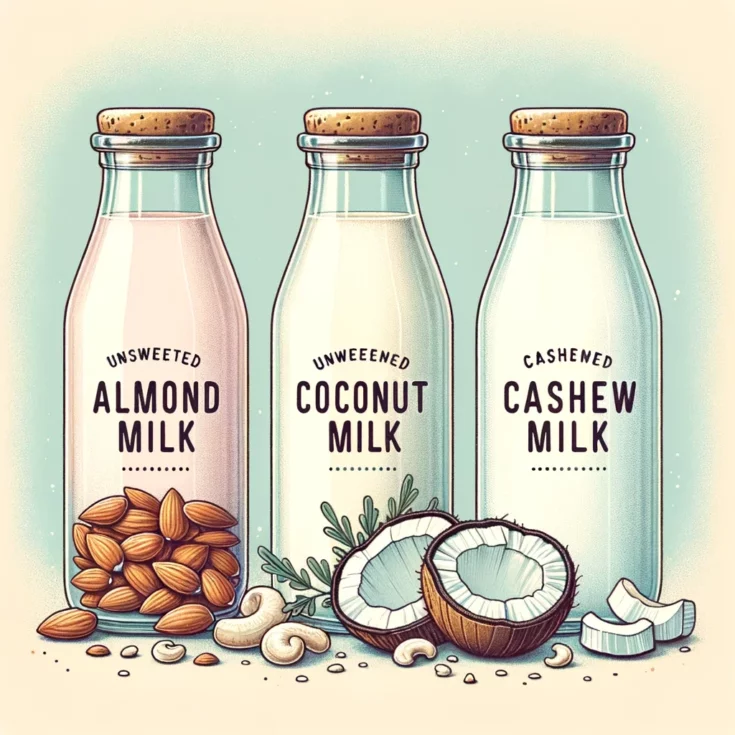Unsweetened almond milk, coconut milk, or cashew milk combined with an acid like lemon juice or vinegar can be used as a buttermilk substitute, especially in vegan and dairy-free cooking and baking.
To make this substitute, the general guideline is to add 1 tablespoon of acid (lemon juice or vinegar) to 1 cup of the plant-based milk of your choice.
Allow the mixture to sit for a few minutes. The acid will cause the milk to curdle slightly, mimicking the texture and tanginess of buttermilk.
Unsweetened Almond Milk, Coconut Milk or Cashew Milk + Acid (Substitute for Buttermilk

Unsweetened almond milk, coconut milk, or cashew milk combined with an acid like lemon juice or vinegar can be used as a buttermilk substitute, especially in vegan and dairy-free cooking and baking.
Ingredients
- 1 tablespoon (15 mL) of vinegar or lemon juice
- 220 mL of unsweetened coconut milk, almond milk or cashew milk
Instructions
- Pour 1 tablespoon (15 mL) of lemon juice or vinegar into a measuring cup.
- Add the unsweetened milk to the 1-cup line (240 mL) and stir.
Notes
The recipes makes about 1 cup (240 mL) of buttermilk substitute.
Here’s how each milk alternative compares when substituting for buttermilk:
- Almond Milk: It is low in fat and protein compared to buttermilk, which may affect the texture and richness of baked goods. However, it has a neutral flavor that won’t significantly alter the taste of your dish.
- Coconut Milk: This has a higher fat content and can add richness to dishes, but it also has a distinct coconut flavor that may come through in the final product. Use it in recipes where the coconut taste is complementary.
- Cashew Milk: It is creamier than almond milk and often has a more neutral flavor than coconut milk, making it a good middle ground for texture and taste. Its fat content is more similar to that of whole milk, which can benefit the texture of baked items.
These plant-based milk alternatives, when acidified, will provide the necessary acidity for recipes where buttermilk is used to react with baking soda for leavening purposes.
However, they won’t provide the same buttery flavor that buttermilk does, and the difference in protein and fat content could affect the final outcome of your recipe.
The texture might be less rich, and structural differences in baked goods can occur due to the lower protein content.
When using these substitutes in savory dishes, almond and cashew milk are usually preferable due to their more neutral flavors, whereas coconut milk is often reserved for dishes that can accommodate its distinctive taste.
It’s important to note that these milks will not thicken as much as dairy milk when acid is added, so the curdling effect will be less pronounced.
Despite this, they can still offer a suitable alternative for buttermilk in most recipes, especially where the presence of dairy is undesirable or not an option due to dietary restrictions.

